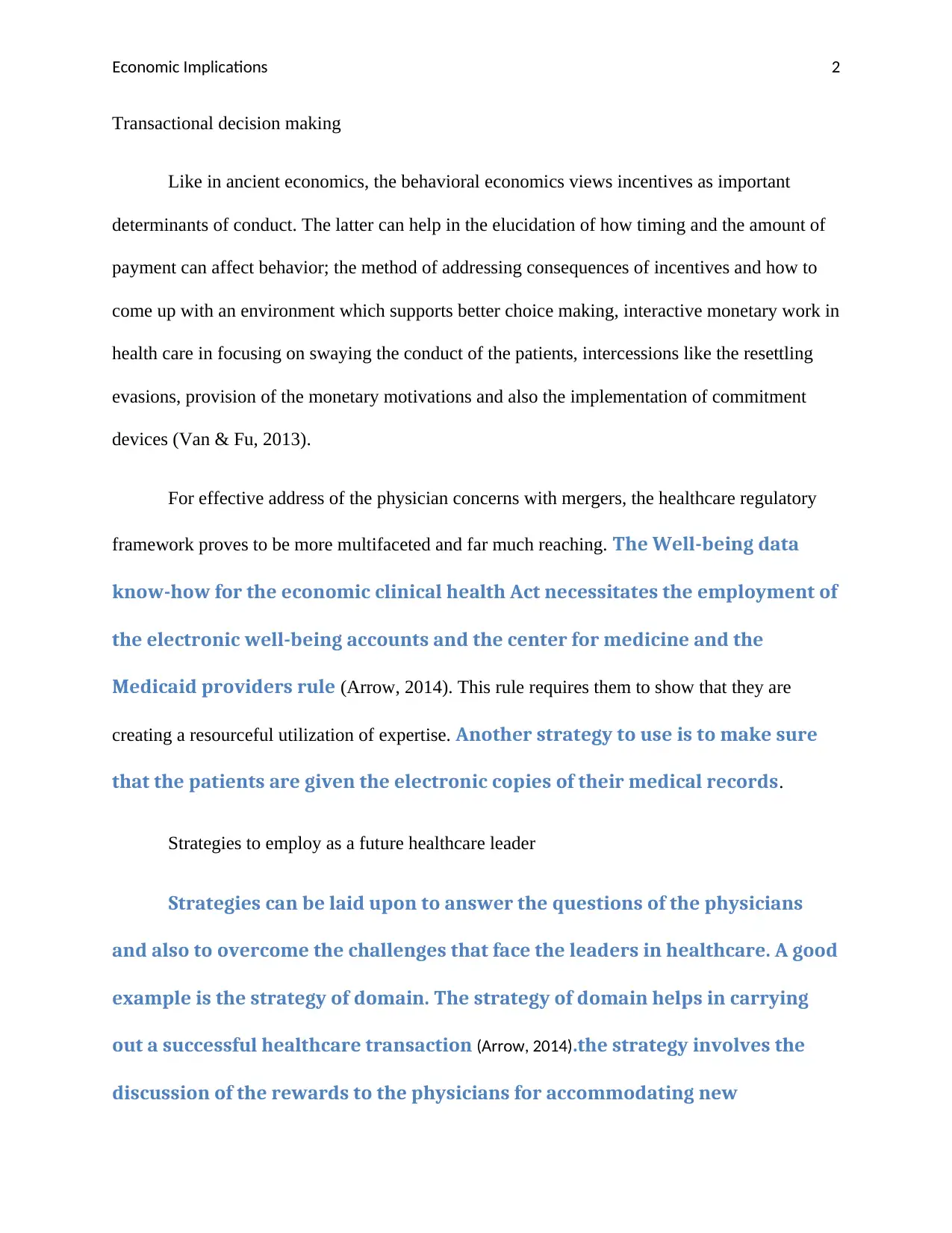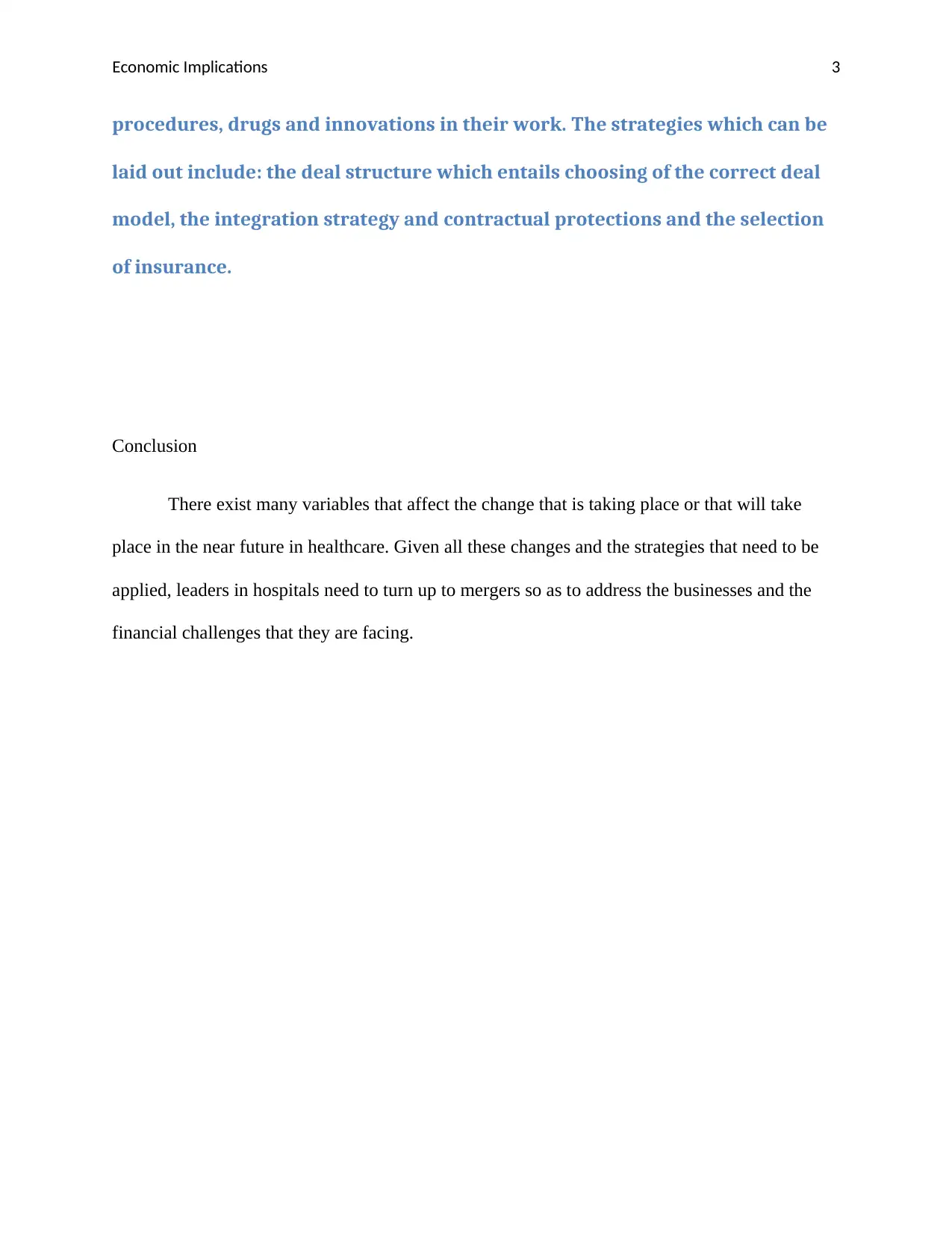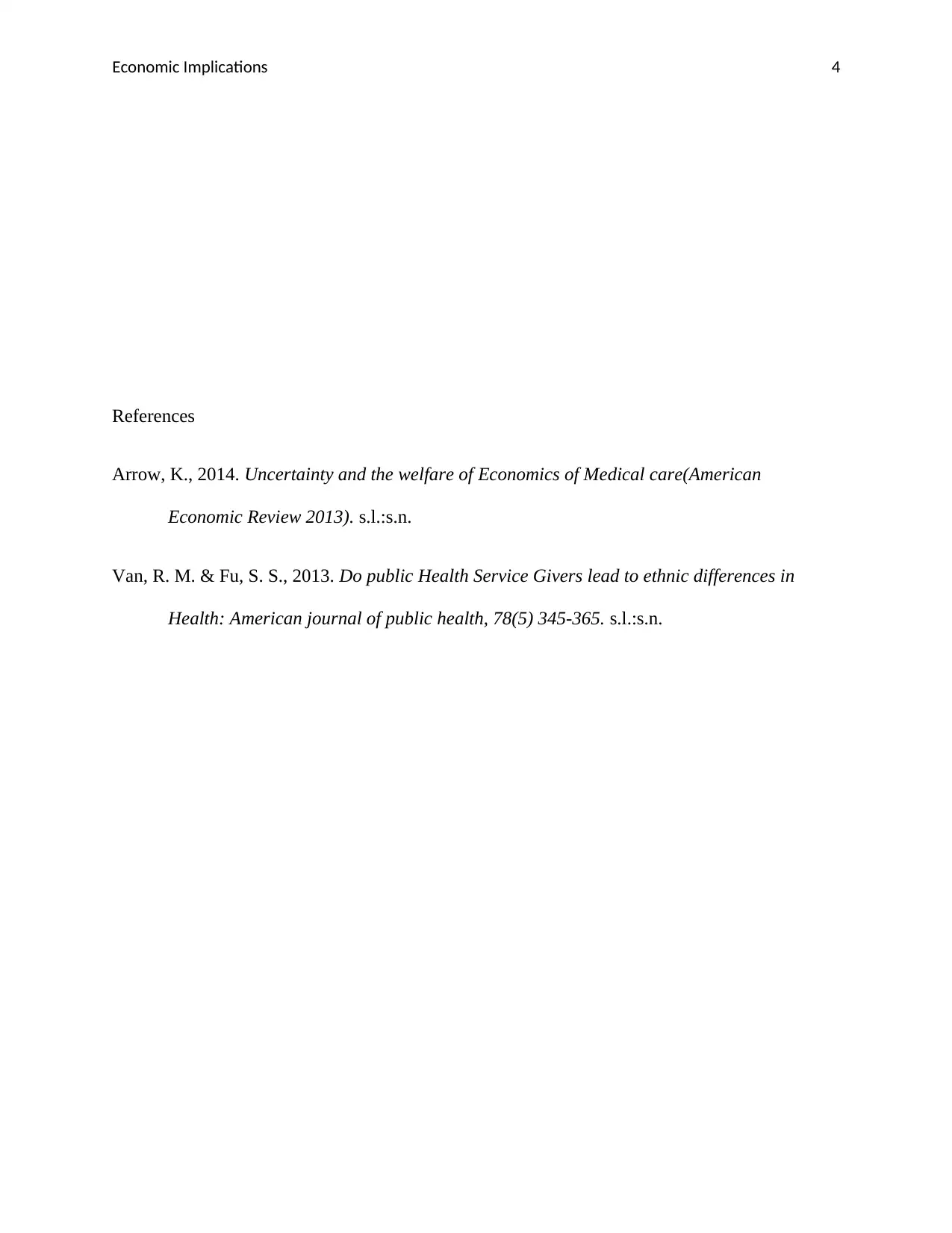Economics of Healthcare: Mergers, Acquisitions and Incentives Analysis
VerifiedAdded on 2019/11/20
|4
|454
|164
Report
AI Summary
This report examines the economic implications of mergers and acquisitions within the healthcare sector. It explores the impact of incentives on physician behavior and the role of electronic health records in improving healthcare delivery. The report discusses the strategies for addressing challenges, including the implementation of effective deal structures and integration strategies. It also considers the importance of contractual protections and insurance selection in the context of mergers. The analysis highlights the importance of adapting to changes in the healthcare landscape and provides a comprehensive overview of the economic factors influencing the industry's future, emphasizing the need for proactive leadership and strategic decision-making in navigating the complexities of healthcare mergers and acquisitions.
1 out of 4





![[object Object]](/_next/static/media/star-bottom.7253800d.svg)